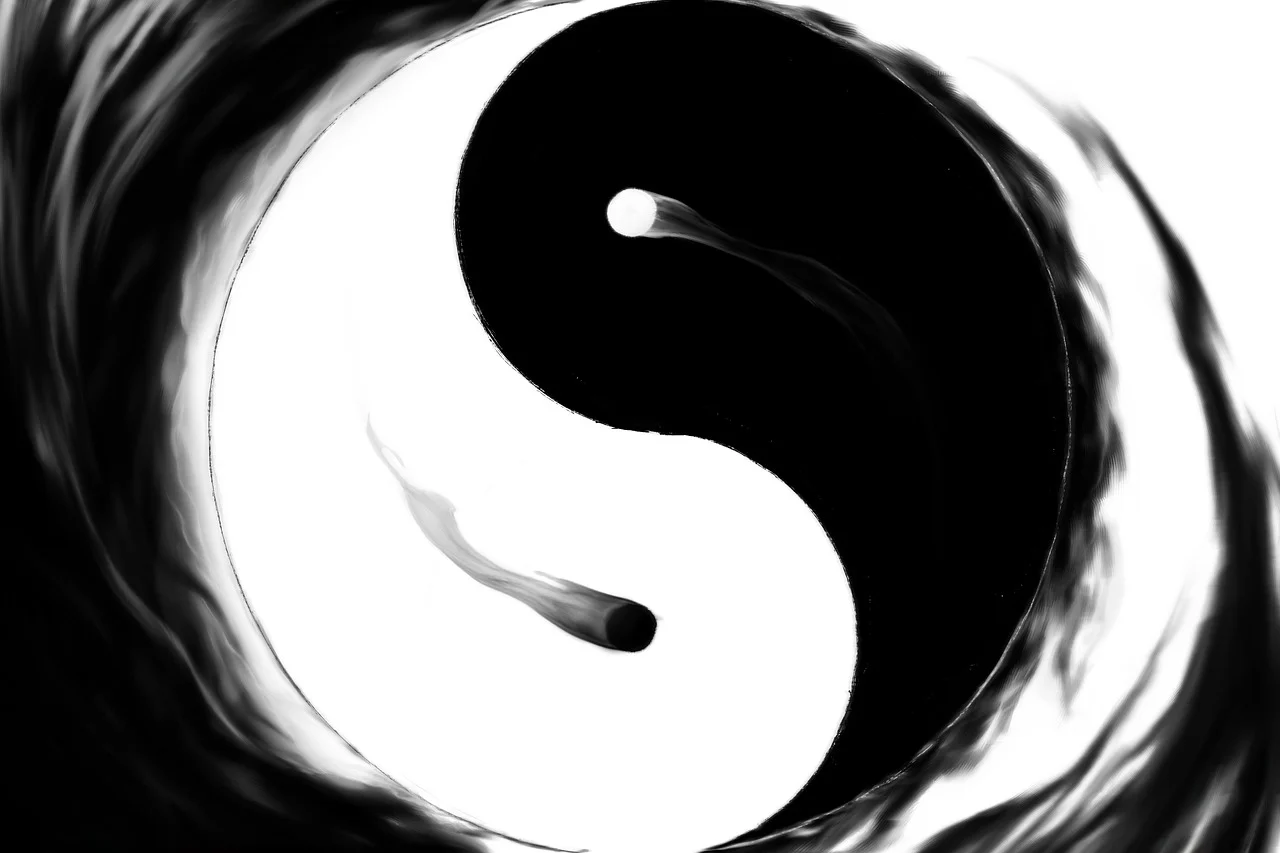.webp)
How many times have you heard it said that this world is governed by a universal, if not divine balance? - That Good cannot exist without evil, that suffering is a necessary and unavoidable price we must pay to experience joy, or that life is made special only because of death?
On the surface it makes a great deal of sense, and the idea seems to be as old as life itself, so why wouldn't one believe it? A better question perhaps is, why wouldn't one want to believe it?
In embracing the notion that evil is necessary, we permit ourselves not only to behave in evil ways, but to excuse ourselves from the need to combat the evil that exists in the world.
But I would like to present an alternative idea that seems to have been forgotten. I know that the idea is not new, because I have heard it said by Rabbis in the past that the original meaning of the word sin is to "miss the target."
Missing the target implies that good is not one side of a scale or a coin on which the opposite is evil, but that goodness, is the centre of a body, and evil is anywhere beyond that central point.
Moving away from scriptural sources, I would ask you to look for confirmation of this concept in the make up of our universe. If we observe a solar system, it is the central point, the Sun, which provides life and animation to the rest of it. So can we then apply this structure to our understanding of good and evil, and use it to bring into question the notion of balance as we currently understand it?
I have had periods of my life where I was so happy, and that sense of joy was so formidable, that I could not imagine what it felt like to be sad. And after suffering my first heart break around the age of 30, I then became so miserable, for so long, that I forgot, very genuinely, what it even felt like to experience joy.
Did the forgetting of joy, negate or dull my misery? It did not. Perhaps because suffering is not an equal and opposing force to joy, but because suffering is merely a lack of it.
To better explain this idea, I would ask you to consider the emotion fear. Is it the opposite of love as so many would have us believe, or is it merely a "missing of the target," - that target in this instance being trust?
If one has trust in their partner, they cannot be afraid they will cheat. If one has trust in their own capabilities, they cannot possible be afraid of failure. And if one has trust that things are as they ought to be, then one is immune to fear entirely.
If we apply this concept to all negative emotions, we may find that jealousy is but a lack of self-worth, for one cannot be jealous of another if they are content in their own being. We might discover that sadness is nothing more than a gratitude deficiency, because it is impossible to be sad when we are truly thankful to be alive. And we way look upon anger as merely a scarcity of tolerance, for how can one be angry when they are accepting of their circumstances?
Possibly then, it is time for us to let go of this idea that evil and the suffering it causes is an essential aspect of existence. It is a little funny to me that the Yin and Yang symbol rather clearly encodes a pair of horns, most likely bull horns. For it is the belief that evil is inexorable that permits us to behave like bulls - to pursuit what we want with no regard for the consequences, because we're convinced that those negative consequences were bound to befall our victims by someone else's hand if not our own.
I for one, intend not to behave like a bull in a china shop any longer. I can no longer convince myself that evil is the opposite of Good. And I ask that you reflect upon this post and ask yourself what are the consequences of you missing the target? Perhaps in being less idle in our actions, and taking time to aim for that bull's eye before firing, we will be able to put the bull within us to death and allow something greater to emerge in its place.
Thanks for reading.
In fact, I heard a Taoist say that the symbol of Taijitu (that of yin and yang) is commonly misinterpreted, because neither white nor black represents good or evil. For them, the symbol represents two extremes, and the good is the balance between those two extremes, but the good itself is not one of those extremes. What follows is my assumption, but it is to be expected that the evil is the imbalance between these two poles, that is, extremism. Therefore, they do seek to do good and maintain balance, and not coexist with evil.
I like that idea. I had in my mind when writing this, the concept of a diving board, just after someone heavy has leapt from it. I was thinking how it bounces up and down, almost in a blur, but eventually calms down and settles again perfectly horizontal. I would like to think that the chaotic nature of the universe is akin to this blurry diving board, seeking equilibrium, and that one day it will find it.
Your post has been voted as a part of Encouragement program. Keep up the good work!
Try https://ecency.com and Earn Points in every action (being online, posting, commenting, reblog, vote and more).
Boost your earnings, double reward, double fun! 😉
Support Ecency, in our mission:
Ecency: https://ecency.com/proposals/141
Hivesigner: Vote for Proposal
Thanks a lot.